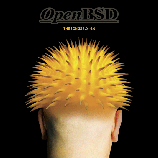
The Songs 3.0 - 4.0
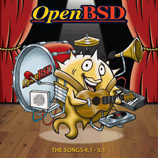
The Songs 4.1 - 5.1
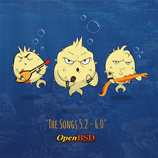
The Songs 5.2 - 6.0
Every 6 months the OpenBSD project has the pleasure to release our software with artwork and a matching song. Theo and some other developers mutate a theme (from a classical setting, a movie, or some genre) into the fishy world of Puffy, to describe some advance, event or controversy the project went through over the previous six months. To match the art released with the historical CD sets, we joined up with some musicians we know to make at least one song.
Three audio CDs have been made which contain approximately 5 years of songs each:

The Songs 3.0 - 4.0 |

The Songs 4.1 - 5.1 |

The Songs 5.2 - 6.0 |
|
4:50
(MP3 8.8MB)
(OGG 3.4MB)
|
Once there was a Wizard so old and wise |

|
Lyrics & voice acting by Tara Smeenk. Composed & produced by Lourens van der Zwaag.
|
3:14
(MP3 5.9MB)
(OGG 3.1MB)
[Sorry, no commentary]
|
There we see developers, busy as bees. |

|
Lyrics by Job Snijders. Composed by Lourens van der Zwaag & Anouk Tuijnman. Produced by Lourens van der Zwaag. Vocals by Tos van Eekeren & Anouk Tuijnman.
|
3:24
(MP3 6.2MB)
(OGG 4.6MB)
as suns rise above high skies
|
No lyrics. |
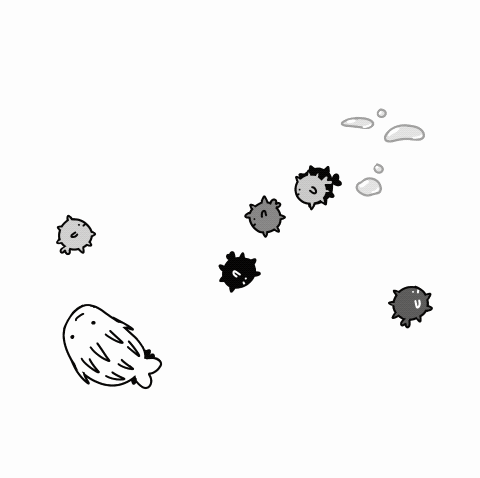
|
Commentary by Job Snijders. Instruments, composition, and arrangement by Bob Kitella.
|
3:24
(MP3 7.8MB)
(OGG 11.0MB)
Like the movie "Hackers", the OpenBSD project is now 25 years old. Though the movie played no part in our focus on security. What a ride it's been. My little hobby project took itself both too seriously, and not seriously at all. Then somewhere along the way the project started collecting many seriously skilled developers who found it a "fertile ground" to play and experiment. (To counter that, maybe they didn't find other places as interesting, or didn't want to write independent software which wasn't being adopted). The "fertile ground" I'm talking about is our willingness to throw away the old and replace it, or try to adopt or build security protections, or integrate pieces normally not part of a unix system (such as the extensive network components). The OpenSSH story comes from the same approach. In doing so, we didn't annoy too many people because we stayed true to the spirit of old BSD unix. It feels like modernized SunOS 4.0, trying to be a highly cohesive complete system where all the parts are supposed to work similarly, and if they don't, we consider changing them. The ifconfig command has been extended greatly, but it remains :-) Strangely, along the way our work started influencing the whole software industry. The packet filter pf is included in some systems. Our libc work is in other places. OpenSSH, privsep, and W^X and address space randomization and other hardenings are either ubiquitous now or inching that way. Pieces of our work are in nooks and crannies everywhere, while the cohesive whole OpenBSD continues to be developed apace. Another 25 years?
|
This software is free,
Stack up too much fakes and the world breaks.
Free functional, and secure.
Hack the planet,
Hacker people! Hacker people!
What's the deal, what's still real?
Hack the planet,
if I fool your time you are mine.
Hack the planet,
Hacker people! Hacker people! |
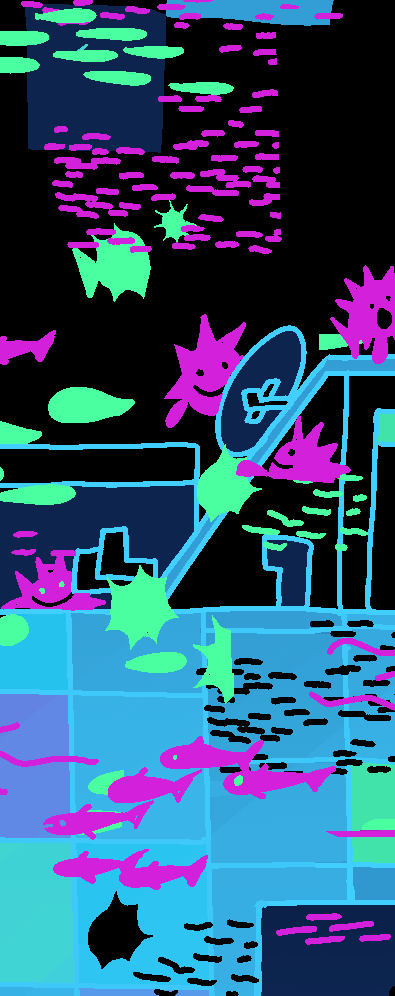
|
Commentary by Theo de Raadt. Lyrics by Job Snijders. Instruments, composition, arrangement, and vocals by Lourens van der Zwaag & Said Vroon. Mixed and mastered by Rayan Vroon.
|
1:54
(MP3 3.5MB)
(OGG 3.0MB)
In OpenBSD developer circles few memes carry as strongly as "The 3 line diff". This is a humorous warning, but also a true story. More than half the developers ("the new kids") don't know this story but still repeat the meme — it has nearly become apocrypha. Unfortunately, in software development not all problems are as trivial as we think. The event happened at a hackathon in Portugal more than a decade ago. In a eureka moment Art declared he had found a stunningly simple solution for a problem long pondered, and he could fix it in 2 — no — 3 lines. In the following weeks his change grew larger and larger, introducing (or exposing) other problems. We stood and stared. It was far from a 3 line diff, and was eventually discarded. I am not writing words of mockery here. This is a common occurrence in complex software development. To do great things, we must reach for the sky. Sometimes we fail, and quite often it is messy. There is of course a danger we'll believe we are invincible, and push a change which is too disruptive to others. For that reason, we operate as a team. We can try to avoid hubris. Therefore to this day posing a question like "And you can fix the problem in 3 lines?" is a humorous way of keeping each other honest. |
Just sit right back and you'll hear a tale,
Art was a mighty coding man,
The coding started getting tough,
The simple change became complex
So this is a tale of our programmers,
Grabowski and the others too
No QEMU, only DDB,
So check a new diff every week,
Working on a marginal diff. |

|
Lyrics by Carson Harding based upon tale from Theo de Raadt. Vocals by Johnny Nordstrom, Chris Wynters, Scott Peters (of Captain Tractor). Composition, arrangement, instruments, and recording by Jonathan Lewis. This song was released 13 months after 6.2 due to various factors.
|
3:30
(MP3 6.4MB)
(OGG 4.7MB)
OpenBSD was only a few months old when we realized that read-only repository access for everyone was a critical concept. Previously, open source projects would make occasional releases accompanied by tarballs of final source files and Changelogs files, but would not expose the step-by-step changes of the development process. Unwittingly all open source projects were operating with a walled garden approach. Chuck Cranor and I worked on the anoncvs feature, and Bob Beck soon became involved in moving the anoncvs mirror off my overloaded ISDN network to the University of Alberta, thereby increasing our capacity to deliver. Nowadays there are many anoncvs mirrors. The introduction of anoncvs meant people without commit access could read the commit logs, as well as each committed diff. They could reason about the past as they proposed new changes. Anoncvs had an immediate impact expanding our development group. We were inundated with high quality diffs. These outsider developers wrote excellent changes because they had sufficient context to reason upon. Those who overwhelmed us with good changes became developers with commit access. We were forced to hand out commit accounts like candy. Some people said we would never last. Their cynicism could almost be thanked for the increase in openness we embraced, and then our openness probably led others to embrace it also. |
I had a Type-4 keyboard,
Me and the guys from core,
Oh, when I look back now,
So we carried on with a fresh source tree,
The source tree just got too big,
Sometimes when I look for something
And now the times have changed
Back around that Halloween,
Everyone needs to see the history. |
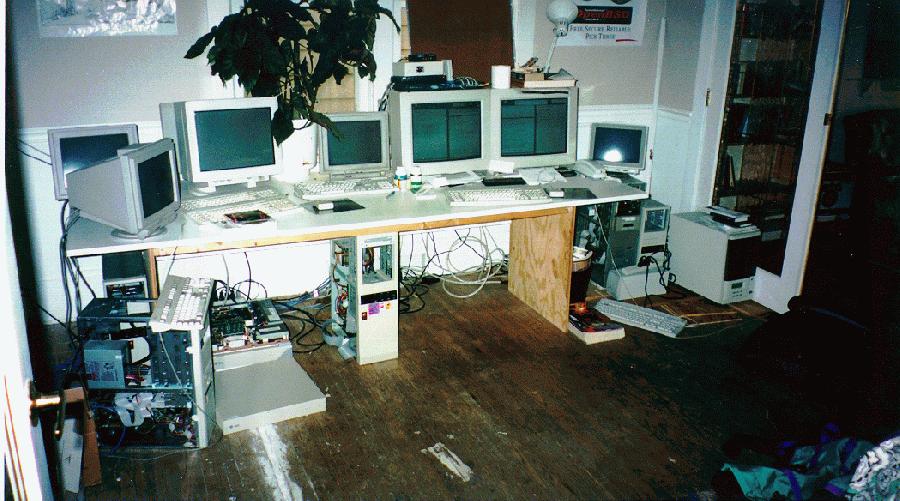
|
Lyrics by Carson Harding and Theo de Raadt at the Ship & Anchor. Vocals by Cary Shields. Composition, arrangement, instruments, vocals, and recording by Jonathan Lewis.
|
In 20 years of mitigating security issues, we've encountered plenty of resistance. Some upstream projects don't seem to care that their software follows unsafe practices or sacrifice security in favor of obsolete methods. It takes sustained pressure to tear down the walls. |
We don't need no exploitation
"Wrong, Code it again!"
"If you don't fix yer JIT, you can't exec the pages.
"You! Yes, you there with the keyboard, shut up and hack!" |
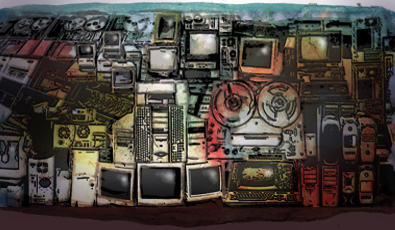
|
Lyrics by Todd Miller. Composition, arrangement, instruments, vocals, and recording by Dewi Wood.
|
Our developers don't really promise an ideal world where all attackers are blocked all the time. But our small group developed some components that help make a difference. |
Black Hat, out there in the cold
Black Hat, always trying to p0wn,
But it was all futility
Black Hat, skimming cards down at the bank |
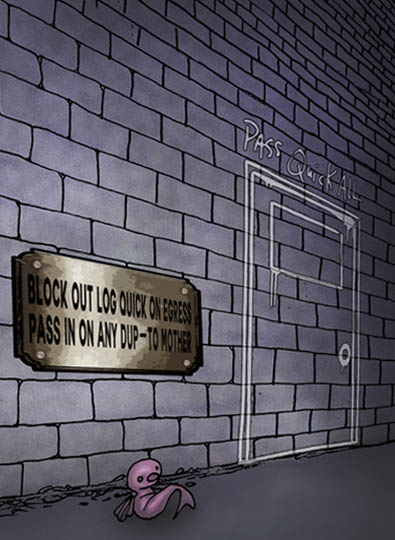
|
Lyrics by Philip Guenther. Composition, arrangement, instruments, vocals and recording by Jonathan Lewis.
|
Consider donating to our development efforts via the OpenBSD Foundation. This Canadian not-for-profit funds OpenBSD's efforts which happen in Canada and all over the world. Majority of the funds covers the hackathons, which increase collaboration between developers by getting them face to face regularly. Funding OpenBSD is funding innovation. |
Money, donate your pay.
Canaries have your back.
Not donating, it's a crime. |

|
Lyrics by Jason B. George. Drums by Cikomo Paul. Bass and vocals by Ulrike Jung. All other instruments, composition, arrangement, and recording by Joerg Jung. Mastering by Lars Neugebauer of adlerhorstaudio.
|
As developers, we want to see users succeed, and so it's especially frustrating to see users setting themselves up to fail. The necessity of triaging vague complaints to determine if they represent true bugs or user error is a tax on all the users whose mail goes unread when motivation runs out. Much like a fork bomb process, these low content threads multiply and explode, threatening the stability of the system itself and aggravating admins and users alike. |
"Hello,
"I don't know how
"Relax.
There is no wifi, you are pleading.
OK
Can you upgrade?
There is no wifi, you are pleading. |
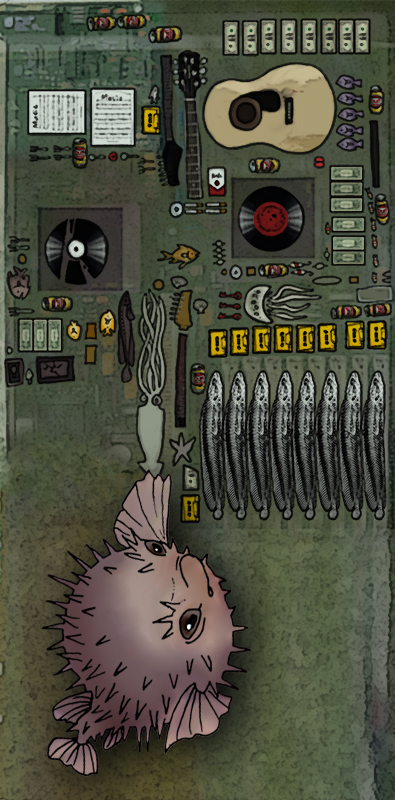
|
Lyrics by Jason George. Composition, arrangement, instruments, vocals, and recording by Dewi Wood.
|
As the author of a number of the OpenBSD songs, I'll admit that sometimes it's a bit of a chore. Theo bugs me to help him out, often with a theme, and eventually I relent and devote an evening to it. One of the things that we're passionate about is making changes to the software ecosystem that make things safer for all of us - not just OpenBSD. Very often we try techniques, and adopt practices on OpenBSD to make things better across the ecosystem, and hope to encourage others to follow our lead. We've had a lot of great success upstreaming changes and ideas to individual projects, often through the diligent work of the OpenBSD ports developers. We've had less success promoting things up through standards bodies and other projects. Too often the world seems caught up in a seemingly suicidal "backward compatibility forever" fervor, exacerbated by standards bodies populated by corporate representation that does not want to make any kinds of disruptive changes that might cause expense. This time, once Theo put the bug in my ear, it didn't take me very long. I pondered our recent efforts to fix random functions via standards bodies, and considered the real possibility of my being harmed by the failure of an embedded 32 bit linux device in 2038, and then this song just wrote itself in about 10 minutes. Enjoy —Bob |
Mother, don't you want to change this code?
Mother, should I send a patch upstream?
Hush now, baby, baby, don't you cry
Ooooh, babe, ooooh, babe, ooooh, babe
Mother, do you think this code is stuffed? (with shit.....)
Hush now, baby, baby, don't you cry
Ooooh, babe, ooooh, babe, ooooh, babe
Mother, does change need to be so hard? |
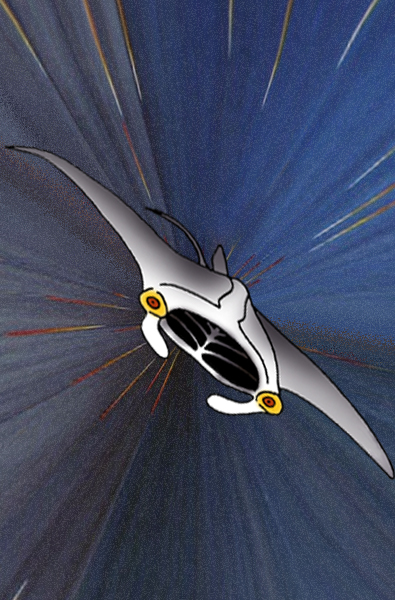
|
Lyrics by Bob Beck. Composition, arrangement, instruments, vocals, and recording by Jonathan Lewis.
|
Theo's debut. It ain't easy being |
Goodbye CDs |

|
Lyrics by Bob Beck. Composition, arrangement, instruments and recording by Jonathan Lewis. Vocals by Theo de Raadt.
|
4:54
(MP3 9.0MB)
(OGG 6.2MB)
This track missed the 6.0 CD release, therefore it is only available here. In Open Source philosophy, distinctions between progress or backwards-compatibility, along with other dichotomous API judgments, are vendor choice, not user; so, the duality of profit and control is an indivisible whole. In the ethics of OpenBSD on the other hand, most notably in the philosophy of Theo de Raadt (c. 21st century AD), a moral dimension is attached to the idea of stagnation and advancement. |
So,
Did you decide to trade
How I wish, how I wish you were secure |
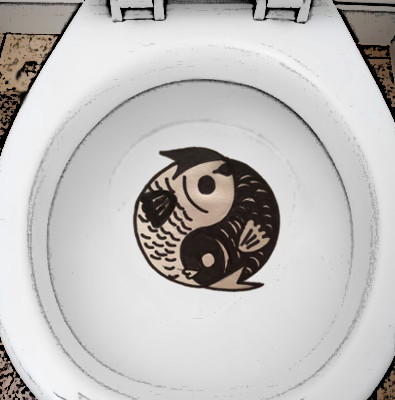
|
Lyrics by Philip Guenther. Vocals by Tierra Watts. Programming, electric bass, electric guitar, and electric violin by Jonathan Lewis.
|
No lyrics. |

|
Composition, arrangement, recording by Jonathan Lewis. Instruments by Jonathan Lewis.
|
BSD fight buffer reign
Crackin' ze bathroom, Crackin' ze vault
Can't fight the Systemagic
Sexty second, black cat struck
Crackin' ze boardroom, Crackin' ze vault Chorus
Cybersluts vit undead guts
Crackin' ze bedroom, Crackin' ze vault Chorus |
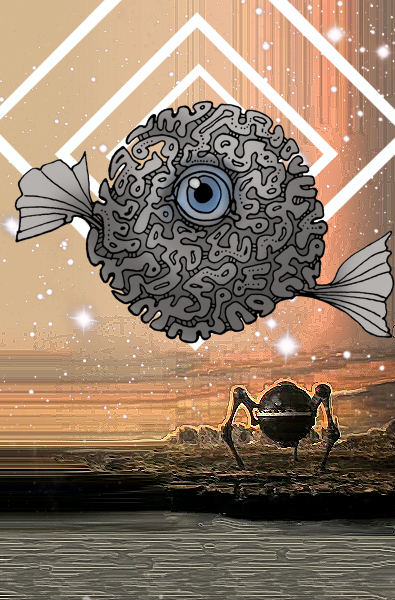
|
Lyrics based on the 3.1 song "Systemagic" by Ty Semaka. Music rearranged by Timm Markgraf. Performed by Timm Markgraf (vocals, guitar, banjo), Malte Schalk (bass), and Moritz Brümmer (cello). Recorded at Esdenera in Hannover, Germany. Mastered by Arno Jordan at Castle Röhrsdorf near Dresden.
|
It was twenty years ago you see
Take a moment to view
We're the openssh repository
It's wonderful to see the code
I don't really want to have to go
So let me introduce to you the one and only Puffy Fish
B... S... D... |
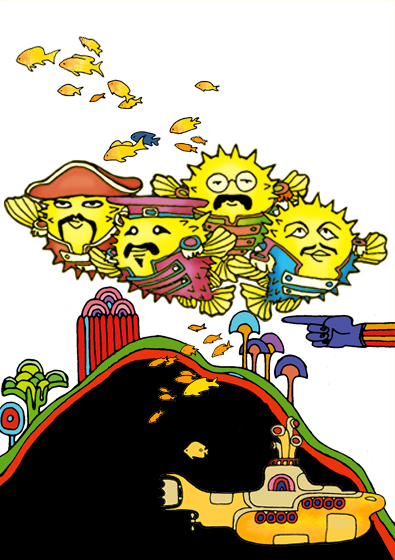
|
Lyrics by Todd C. Miller. Composition, arrangement, recording by Jonathan Lewis. Vocals and instruments by Jonathan Lewis.
|
No lyrics. |

|
Arrangement, recording and synthesizer design by Alexandre Ratchov, on OpenBSD.
|
After 20 years, one has to admit:
With every release,
With every release,
Let's count in sys:
With every release,
Let's count in log:
Proactive security and sane defaults
With every release,
With every release,
With every release,
With every release, |
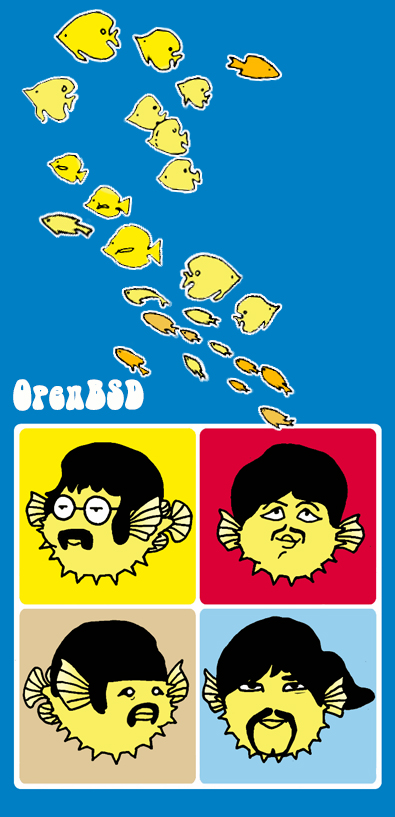
|
Lyrics, composition, arrangement, and recording by Joerg Jung. Female vocals by Ulrike Jung. Edited, composed, and arranged on OpenBSD using Audacity, CMU Flite, and Schism Tracker. Mastering by Lars Neugebauer of adlerhorstaudio and Joerg Jung.
|
I read the news today oh boy
BIO_snprintf with a cast..
I saw a tweet today oh boy.
Built up.. a sense of dread..
Whiiiiiiinne whine whine....
I read the news today oh boy |
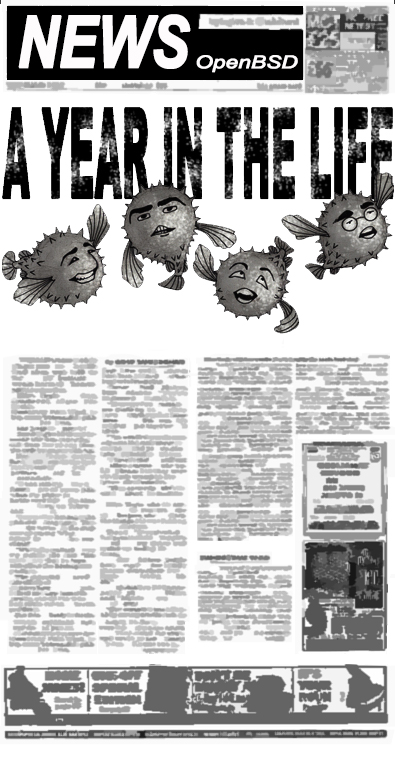
|
We've done stuff about LibreSSL before, but this particular song just fit with the release theme. While the lyrics can speak for themselves, "A Year In The Life" is representative of more than just LibreSSL. The pattern of LibreSSL development is a pattern that has repeated itself many times in OpenBSD — a decision is made by a few people to do something, followed by action, and letting the world share it if they like it (such as with OpenSSH). To the developers actually doing the work, reactions to such efforts can often seem surreal, or irrelevant. The juxtaposition of working on the very real with the surreal going on around you can often make working on such projects feel like you're in a bit of an altered reality.. Sort of like the song. A number of us have had many years like this in the last 20.
Lyrics by Bob Beck. Composition, arrangement, recording by Jonathan Lewis. Vocals and instruments by Jonathan Lewis.
|
Comin' to ya, via CVS
I'm a Source Fish, ha ha
Code used to suck, in a Big way
I'm a Source Fish
With a secure shell, and a key or two
I'm a Source Fish, that's right
When the bullies, in that neighborhood Instrumental
I'm a Source Fish, ha |
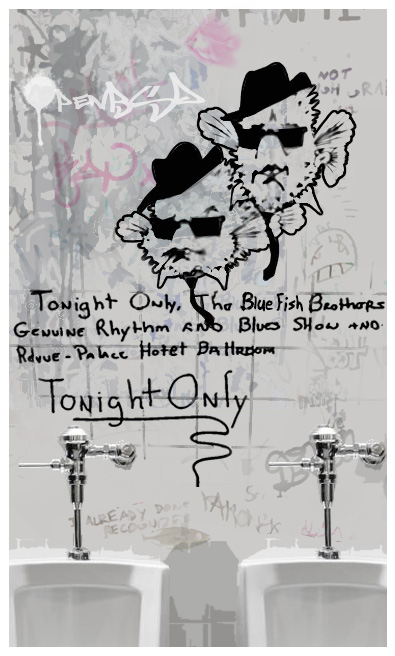
|
Richie Pollack: vocals and harmonica. Jonathan Lewis: programming, bass, piano, and Hammond B3 organ. André Wickenheiser: trumpet. Lyrics by Bob Kitella. Produced and Recorded by Jonathan Lewis.
|
No lyrics. |
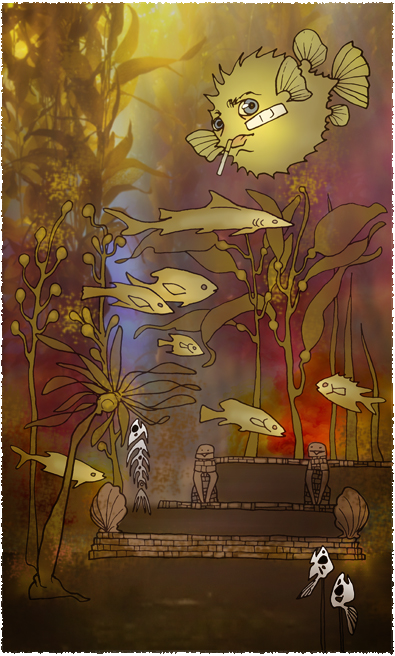
|
No one wants to fork an open source project: it's a huge amount of work and isn't efficient in community time, but when you wake up one day and find that a hole in the SSL library you're using made world-wide news, and that the library's bad code style is hiding exploit mitigation countermeasures, then suddenly forking seems critically important. Two months of intense development later, LibreSSL was released.
The bigger questions remain for the open source development community to answer: why did this occur? Why is the OpenSSL code base so hard to understand? Complexity is the enemy of security, so for something whose raison d'être is security, why are secondary goals allowed to endanger the absolute #1 goal? Or has OpenSSL become a brand which allows companies to — on the cheap — meet security "requirements" like FIPS instead of actually being secure?
How important is it for developers and customers to have software where security is the goal? How much are they willing to push back on the OS developers and others to achieve that? Can we set a new, higher bar for best practices that will drive everyone to do more than just posture?
Composed by Richard Wagner in July of 1851. Arranged and performed by Jonathan Lewis.
|
Tell me doctor, what will be the date,
|
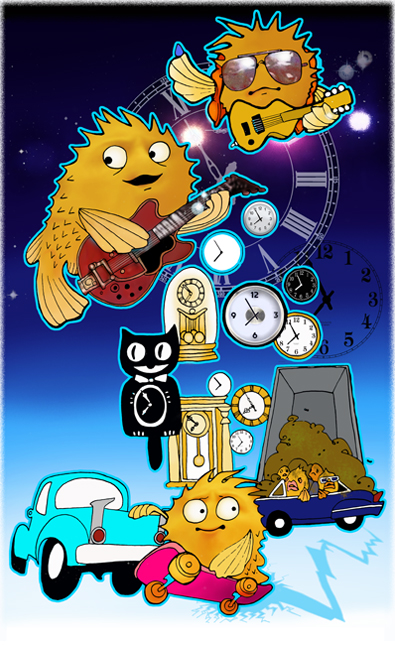
|
In January of 2038, 32-bit Unix time will overflow and wrap back to 1901. This is known as the Year 2038 problem. POSIX operating systems have made strong inroads into embedded roles, so this is anticipated to be substantially worse than the Y2K transition.
In August of 2012, Philip Guenther started the OpenBSD work to solve this. After a year of work it was ready enough for merging, and in August 2013 the time_t type was changed to int64_t on all platforms and the kernel and userland were adapted to the new situation. The initial work was committed right after OpenBSD 5.4, then polished in tree over the next 6 months.
The next part of the process was to drag the "ports" software ecosystem along because no one else had paved the way for 32-bit machines to run with 64-bit time_t. This required a fair bit of upstream involvement. Thousands of fixes were required to make both 32-bit and 64-bit time work transparently. There will be more fixing in the future, but the concept is proven.
In the past OpenBSD pushed risky theoretical ideas into mainstream software practice by proving the ecosystem was ready to change. No OS wants to make a ABI jump until the case for change is proven. Stack protection, ASLR, and W^X principles are now in common use by mainline operating systems... because things like Firefox and Postgresql don't break anymore. OpenBSD built that route.
In the same way, the road is paved for the 64-bit time_t transition. Other operating systems can now make this jump.
Lyrics by Bob Beck and Philip Guenther. Vocals by Steve Pineo. Composition, arrangement, recording, and mastering by Jonathan Lewis.
|
do { to loop |
PF divert-to and async resolver
|
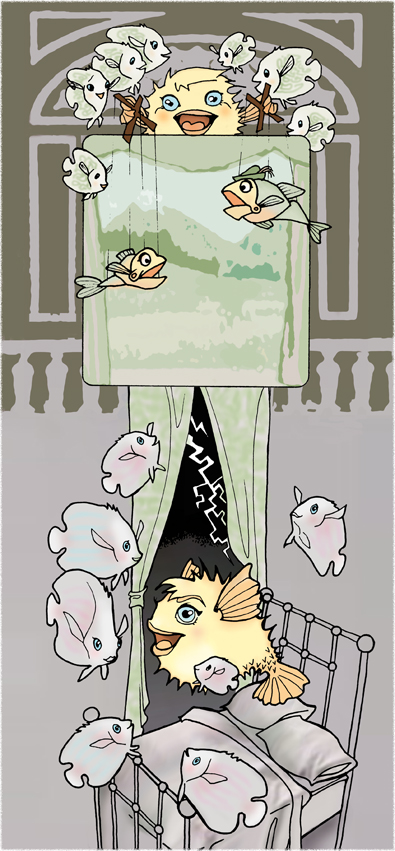
|
Lyrics by Philip Guenther. Vocals by Allison Lynch. Composition, arrangement, recording, and mastering by Jonathan Lewis.
|
Starting with this release, we introduce a new artist — Katherine Piro. |
I've seen things your programs wouldn't believe.
[laughs]
Stack frames unwinding with Turing complete behaviour.
I watched threads racing trampoline bindings in ld.so.
All those overwrites will be lost in memory
Time to dump core. |

|
Lyrics by Theo de Raadt. Composition, arrangement, vocals, recording, and mastering by Bob Kitella.
|
Just as the original song professed its love for Brazil, "World, you'll love my Linux" is the passionate call of an idealistic dreamer who can't bear the thought of software that will only run under Windows, and yet loves the situation with software that will only run under particular Linux distributions. This problem has proliferated itself into the standards bodies, with Posix adopting Linuxisms ahead of any other variant of Unix. Posix and Unix have made it where you can write reasonably portable software and have it compile and run across a multitude of platforms. Now this seems to be changing as the love for Linux drives the standards bodies into accepting everything Linux, good and bad. We also are faced with groups writing software that only works with particular distributions of Linux. From this we get software that not only isn't very portable, but often not particularly stable. Our idealistic dreamer in the song loves running one, or more than one distribution of Linux for a particular purpose. Unfortunately, the rest of us are left with the unattractive choice of doing the same, or relying on herculean efforts to port software that is being actively developed in a way to discourage porting it to other platforms. |
Linux, the one and only true Unix
Then, tomorrow brings a new distro
Then, there's other stuff we push as well |
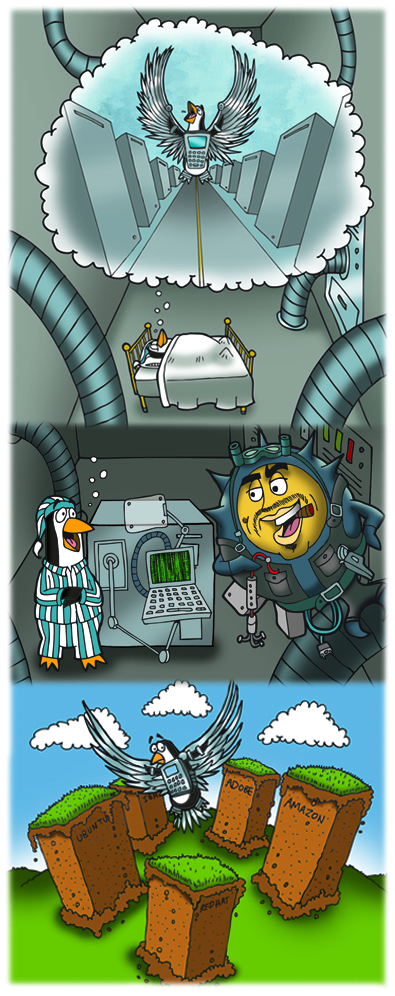
|
Lyrics by Bob Beck. Music composed and arranged by Jonathan Lewis. Vocals by Doug McKeag. Guitar by Victor Farrell. All other instruments, Jonathan Lewis. Recorded, mixed, and mastered Jonathan Lewis of Moxam Studios.
|
If you've got a bug
Buffer overflow?
I ain't afraid of no holes
And you're off by one
If your system's down
I ain't afraid of no holes
If you need a trace
If you got a crash
OpenBSD makes me feel good! |

|
Written and Arranged by Ty Semaka and Jonathan Lewis. Lyrics and Vocals by Ty Semaka. All instruments programmed by Jonathan Lewis. Recorded, mixed, and mastered by Jonathan Lewis of Moxam Studios.
|
This is an extra track by Ty Semaka and Jonathan Lewis. On a regular basis, the OpenBSD developers hold events called hackathons. We've held many many of them, all over the world. Sub-groups of developers sit in one room and work fulltime for around a week. One phrase in particular that has come up amongst developers, to cut extra chit-chat to a minimum, is Shut up and Hack. We've placed this phrase on hackathon tshirts too; they were very popular with the guys. The 2nd OpenBSD Audio CD "The Songs 4.1 - 5.1" celebrates the artwork and songs that have been released with each OpenBSD release. All the songs from the 4.1 to 5.1 releases are included (plus two bonus tracks). The audio CD package contains some stickers (which ones may vary). |
Shut up and hack!
At the tables
Close up your holes
Coding faster
In your t-shirts CHORUS
Hit the pub now
Have a laugh and CHORUS |
This is an extra track by audio-subsystem developer Alexandre Ratchov. It has no lyrics. The music is inspired by a poem with the same title and was entirely recorded and mixed using OpenBSD.
|
Ty Semaka has been drawing
A Puffy-inspired parody of |
What? Me Worry?
I'm a comic book kid
Ya it's spy versus spy
Threw a brick through your window
Little black flies
Make fun of everybody
It's a mad mad world
Threw a brick through your window
Keep the source open
Got a stack o magazines
Got a dime store bazooka
Threw a brick through your window |

|
Written and Arranged by Ty Semaka and Jonathan Lewis. Lyrics and Vocals by Ty Semaka. Percussion and fuzzy bass guitar by Jonathan Lewis. Electric guitars by Tim Williams. Recorded, mixed, and mastered by Jonathan Lewis of Moxam Studios.
|
This release is OpenBSD 4.9. Then why is the song about 4.2? Huh? The OpenBSD 4.4 release artwork honoured the (Berkeley) CSRG guys for their efforts with the BSD 4.4 release — they fought and managed to free the code. This release the artwork is based on the stories of Douglas Adams, including his favorite number — 42. Therefore we can remember the previous major achievement of CSRG — BSD 4.2. BSD 4.2 was not free, but it created and integrated so many new technologies that we all depend on today. Take a moment to consider how many things first available in BSD 4.2 you are using at this moment, to read this page — sockets, AF_INET, virtual memory, etc. Today, new releases of operating systems from well-known vendors contain less new features than BSD 4.2 did. If only we could stop slacking and make a release like that! |
How many streams must a fish swim down
The answer my friend
How many years can a planet exist
The answer my friend
How many times must we fight for the right
The answer my friend
And now we can travel the galaxy
The answer my friend |

|
Written and Arranged by Jonathan Lewis. Lyrics and Vocals by Ty Semaka. Guitar and harmonica by Leslie Alexander. Recorded, mixed, and mastered by Jonathan Lewis of Moxam Studios.
|
2:39
(MP3 4.4MB)
(OGG 3.0MB)
OpenBSD 4.8 CD2 track 2 is [Instrumental] [Sorry, no commentary] |
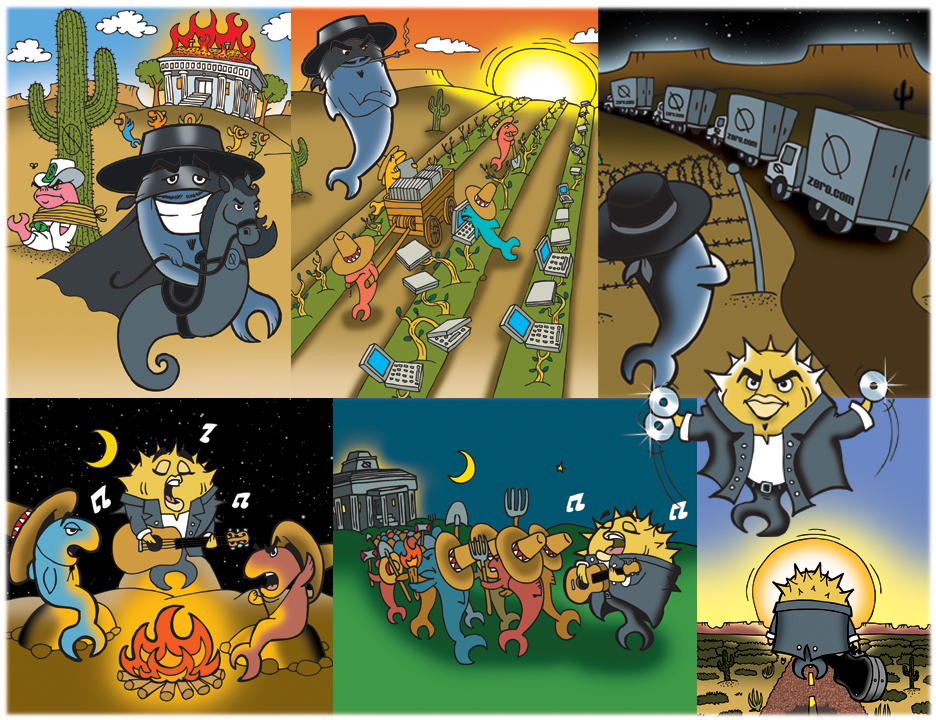
|
Written and performed by Manuel Jara and Mauricio Moreno of 'Los Morenos'.
|
[Sorry, no commentary] |
Back when I was twenty
All I ever wanted
The changes that I've been through
But I'm still here
Some say that I'm a hero
One day when I was flying
The server room was burning up
CHORUS: INSTRUMENTAL
Now that I am older CHORUS: |

|
Written, arranged, and sung by Bob Kitella. Guitar by Tim Campbell. Keyboard by Bob Kitella and Jonathan Lewis. Bass, additional programming, mixing, and mastering by Jonathan Lewis.
|
[Sorry, no commentary] |
Welcome to the future
Everyone is armless
CHORUS
Everyone is happy
Soylent Green pap CHORUS
Take me back
Way back in my time
Hackers had a doorway CHORUS |

|
Written and arranged by Ty Semaka and Jonathan Lewis. Lyrics by Ty Semaka. Vocals by Duncan McDonald, bass guitar by Jonathan Lewis, guitars by Russ Broom, drums by John McNeil. Recorded, mixed, and mastered by Jonathan Lewis of Moxam Studios.
|
[Sorry, no commentary] |
I love to hate my PC
You wanna know the truth?
With A.C.P.I.
Lost connections CHORUS
Now on the motherboard
Ruled by A.C.P.I.
Lost connections CHORUS
Yes I'm a user
And we will find it
Lost connections
(bridge) Instrumental CHORUS (guitar solo) Instrumental pre-chorus
CHORUS |

|
Music written and arranged by Jonathan Lewis. Lyrics by Ty Semaka and Theo de Raadt. Synth, drum and bass programming by Jonathan Lewis, guitar by Russ Broom, vocals by Jonny Sinclair. Recorded, mixed, and mastered by Jonathan Lewis of Moxam Studios.
|
Nearly 10 years ago Kirk McKusick wrote a history of the Berkeley Unix distributions for the O'Reilly book "Open Sources: Voices from the Open Source Revolution". We recommend you read his story, entitled "Twenty Years of Berkeley Unix From AT&T-Owned to Freely Redistributable" first, to see how Kirk remembers how we got here. Sadly, since it showed up in book form originally, this text has probably not been read by enough people. The USL(AT&T) vs BSDI/UCB court case settlement documents were not public until recently; their disclosure has made the facts more clear. But the story of how three people decided to free the BSD codebase of corporate pollution — and release it freely — is more interesting than the lawsuit which followed. Sure, a stupid lawsuit happened which hindered the acceptance of the BSD code during a critical period. But how did a bunch of guys go through the effort of replacing so much AT&T code in the first place? After all, companies had lots of really evil lawyers back then too — were they not afraid? After a decade of development, most of the AT&T code had already been replaced by university researchers and their associates. So Keith Bostic, Mike Karels and Kirk McKusick (the main UCB CSRG group) started going through the 4.3BSD codebase to cleanse the rest. Keith, in particular, built a ragtag team (in those days, USENIX conferences were a gold mine for such team building) and led these rebels to rewrite and replace all the Imperial AT&T code, piece by piece, starting with the libraries and userland programs. Anyone who helped only got credit as a Contributor — people like Chris Torek and a cast of .. hundreds more. Then Mike and Kirk purified the kernel. After a bit more careful checking, this led to the release of a clean tree called Net/2 which was given to the world in June 1991 — the largest dump of free source code the world had ever received (for those days — not modern monsters like OpenOffice). Some of these ragtags formed a company (BSDi) to sell a production system based on this free code base, and a year later Unix System Laboratories (basically AT&T) sued BSDi and UCB. Eventually AT&T lost and after a few trifling fixes (described in the lawsuit documents) the codebase was free. A few newer developments (and more free code) were added, and released in June 1994 as 4.4BSD-Lite. Just over 14 years later OpenBSD is releasing its own 4.4 release (and for a lot less than $1000 per copy). The OpenBSD 4.4 release is dedicated to Keith Bostic, Mike Karels, Kirk McKusick, and all of those who contributed to making Net/2 and 4.4BSD-Lite free. |
Source Wars
Not so very long ago
Some Berkeley geeks rebuilt it
And then the roaring 90's came
The Empire's Unix Lab
The University came calling
Then Bostic brought the Empire's books
They didn't even give an ounce
The case was thrown out by the judge
And to this day the geekfolk say
And take out ads in major rags
The Empire might have tumbled
But only one community
And OpenBSD is here
And may the source be with you |

|
Music written and arranged by Jonathan Lewis. Lyrics and vocals by Ty Semaka. Clarinet by Cedric Blary. Alto Sax 1 & 2, Tenor Sax by Lincoln Frey. Drum, Bass, and Steel Drum programming by Jonathan Lewis. Recorded, mixed, and mastered by Jonathan Lewis of Moxam Studios.
|
We are just plain tired of being lectured to by a man who is a lot like Naomi Campbell. In 1998 when a United Airlines plane was waiting in the queue at Washington Dulles International Airport for take-off to New Orleans (where a Usenix conference was taking place), one man stood up from his seat, demanded that they stop waiting in the queue and be permitted to deplane. Even after orders from the crew and a pilot from the cockpit he refused to sit down. The plane exited the queue and returned to the airport gangway. Security personnel ran onto the plane and removed this man, Richard Stallman, from the plane. After Richard was removed from the plane, everyone else stayed onboard and continued their journey to New Orleans. A few OpenBSD developers were on that same plane, seated very close by, so we have an accurate story of the events. This is the man who presumes that he should preach to us about morality, freedom, and what is best for us. He believes it is his God-given role to tell us what is best for us, when he has shown that he takes actions which are not best for everyone. He prefers actions which he thinks are best for him — and him alone — and then lies to the public. Richard Stallman is no Spock. We release our software in ways that are maximally free. We remove all restrictions on use and distribution, but leave a requirement to be known as the authors. We follow a pattern of free source code distribution that started in the mid-1980's in Berkeley, from before Richard Stallman had any powerful influence which he could use so falsely. We have a development sub-tree called "ports". Our "ports" tree builds software that is 'found on the net' into packages that OpenBSD users can use more easily. A scaffold of Makefiles and scripts automatically fetch these pieces of software, apply patches as required by OpenBSD, and then build them into nice neat little tarballs. This is provided as a convenience for users. The ports tree is maintained by OpenBSD entirely separately from our main source tree. Some of the software which is fetched and compiled is not as free as we would like, but what can we do. All the other operating system projects make exactly the same decision, and provide these same conveniences to their users. Richard felt that this "ports tree" of ours made OpenBSD non-free. He came to our mailing lists and lectured to us specifically, yet he said nothing to the many other vendors who do the same; many of them donate to the FSF and perhaps that has something to do with it. Meanwhile, Richard has personally made sure that all the official GNU software — including Emacs — compiles and runs on Windows. That man is a false leader. He is a hypocrite. There may be some people who listen to him. But we don't listen to people who do not follow their own stupid rules. |
Puffy and the mighty Cryptonauts
|

|
Music written and arranged by Jonathan Lewis. Lyrics by Ty Semaka and Nikkos Diochnos. Vocals and bouzouki by Nikkos Diochnos. Baglama, second bouzouki, violin, bass, and drum programming by Stelios Pulos, né Jonathan Lewis. Guitar by Methodios Valtiotis, né Allen Baekeland. Percussion by Pentelis Yiannikopulos, né Ben Johnson. Recorded, mixed, and mastered by Jonathan Lewis of Moxam Studios.
|
Those of us who work on OpenBSD are often asked why we do what we do. This song's lyrics express the core motivations and goals which have remained unchanged over the years — secure, free, reliable software, that can be shared with anyone. Many other projects purport to share these same goals, and love to wrap themselves in a banner of "Open Source" and "Free Software". Given how many projects there are one would think it might be easy to stick to those goals, but it doesn't seem to work out that way. A variety of desires drag many projects away from the ideals very quickly. Much of any operating system's usability depends on device support, and there are some very tempting alternative ways to support devices available to those who will surrender their moral code. A project could compromise by entering into NDA agreements with vendors, or including binary objects in the operating system for which no source code exists, or tying their users down with contract terms hidden inside copyright notices. All of these choices surrender some subset of the ideals, and we simply will not do this. Sure, we care about getting devices working, but not at the expense of our original goals. Of course since "free to share with anyone" is part of our goals, we've been at the forefront of many licensing and NDA issues, resulting in a good number of successes. This success had led to much recognition for the advancement of Free Software causes, but has also led to other issues. We fully admit that some BSD licensed software has been taken and used by many commercial entities, but contributions come back more often than people seem to know, and when they do, they're always still properly attributed to the original authors, and given back in the same spirit that they were given in the first place. That's the best we can expect from companies. After all, we make our stuff so free so that everyone can benefit — it remains a core goal; we really have not strayed at all in 10 years. But we can expect more from projects who talk about sharing — such as the various Linux projects. Now rather than seeing us as friends who can cooperatively improve all codebases, we are seen as foes who oppose the GPL. The participants of "the race" are being manipulated by the FSF and their legal arm, the SFLC, for the FSF's aims, rather than the goal of getting good source into Linux (and all other code bases). We don't want this to come off as some conspiracy theory, but we simply urge those developers caution — they should ensure that the path they are being shown by those who have positioned themselves as leaders is still true. Run for yourself, not for their agenda. The Race is there to be run, for ourselves, not for others. We do what we do to run our own race, and finish it the best we can. We don't rush off at every distraction, or worry how this will affect our image. We are here to have fun doing right. |
The starting line is nervous
The water's full of dangers
*Give and get back some
One Zero Zero Zero Zero One
The window is a wall by now
The sun a son of Icarus *CHORUS*
One Zero One Zero One Zero One
Slow and steady wins they say
Imaginary rings of brass
*Give and get back some |

|
Music written and arranged by Jonathan Lewis. Recorded, mixed and mastered by Jonathan Lewis of Moxam Studios. Vocals by Duncan McDonald. Drums by John McNeil. Guitar by Jeff Drummond. Bass and keyboards by Jonathan Lewis. Lyrics by Ty Semaka and Theo de Raadt.
|
As developers of a free operating system, one of our prime responsibilities is device support. No matter how nice an operating system is, it remains useless and unusable without solid support for a wide percentage of the hardware that is available on the market. It is therefore rather unsurprising that more than half of our efforts focus on various aspects relating to device support. Most parts of the operating system (from low kernel, through to libraries, all the way up to X, and then even to applications) use fairly obvious interface layers, where the "communication protocols" or "argument passing" mechanisms (ie. APIs) can be understood by any developer who takes the time to read the free code. Device drivers pose an additional and significant challenge though: because many vendors refuse to document the exact behavior of their devices. The devices are black boxes. And often they are surprisingly weird, or even buggy. When vendor documentation does not exist, the development process can become extremely hairy. Groups of developers have found themselves focused for months at a time, figuring out the most simple steps, simply because the hardware is a complete mystery. Access to documentation can ease these difficulties rapidly. However, getting access to the chip documentation from vendors is ... almost always a negotiation. If we had open access to documentation, anyone would be able to see how simple all these devices actually are, and device driver development would flourish (and not just in OpenBSD, either). When we proceed into negotiations with vendors, asking for documentation, our position is often weak. One would assume that the modern market is fair, and that selling chips would be the primary focus of these vendors. But unfortunately a number of behemoth software vendors have spent the last 10 or 20 years building political hurdles against the smaller players. A particularly nasty player in this regard has been the Linux vendors and some Linux developers, who have played along with an American corporate model of requiring NDAs for chip documentation. This has effectively put Linux into the club with Microsoft, but has left all the other operating system communities — and their developers — with much less available clout for requesting documentation. In a more fair world, the Linux vendors would work with us, and the device driver support in all free operating systems would be fantastic by now. We only ask that users help us in changing the political landscape. |
Here's an old story ...
|

|
Recorded, mixed and mastered by Jonathan Lewis of Moxam Studios. Voice by Richard Sixto. Lyrics by Ty Semaka.
|
This is an extra track by the artist Ty Semaka (who really has "had Puffy on his mind") which we included on the "The Songs 3.0 - 4.0" audio CD. This song details the process that Ty has to go through to make the art and music for each OpenBSD release. Ty and Theo really do go to a (very specific) bar and discuss what is going on in the project, and then try to find a theme that will work... The 1st OpenBSD Audio CD "The Songs 3.0 - 4.0" celebrates the artwork and songs that have been released with each OpenBSD release. All the songs from the 3.0 to 4.0 releases are included (plus this bonus track). Includes an 11cm silver-on-clear die-cut wireframe Puffy sticker! |
Be Open (repeat)
OpenBSD
Twice a year,
And then he says, |
Be Open (repeat)
Then he has another beer and
(beat boxin') |
|
The last 10 years, every 6 month period has (without fail) resulted in an official OpenBSD release making it to the FTP servers. But CDs are also manufactured, which the project sells to continue our development goals. While tests of the release binaries are done by developers around the world, Theo and some developers from Calgary or Edmonton (such as Peter Valchev or Bob Beck) test that the discs are full of (only) correct code. Ty Semaka works for approximately two months to design and draw artwork that will fit the designated theme, and coordinates with his music buddies to write and record a song that also matches the theme. Then the discs and all the artwork gets delivered to the plant, so that they can be pressed in time for an official release date. This release, instead of bemoaning vendors or organizations that try to make our task of writing free software more difficult, we instead celebrate the 10 years that we have been given (so far) to write free software, express our themes in art, and the 5 years that we have made music with a group of talented musicians. OpenBSD developers have been torturing each other for years now with Humppa-style music, so this release our users get a taste of this too. Sometimes at hackathons you will hear the same songs being played on multiple laptops, out of sync. It is under such duress that much of our code gets written. We feel like Pufferix and Bobilix delivering The Three Discs of Freedom to those who want them whenever the need arises, then returning to celebrate the (unlocked) source tree with all the other developers. |
Humppa negala
Humppa negala
Humppa neranenah
Humppa neranenah
Uru, uru achim!
Humppa negala
Humppa neranenah
Humppa neranenah
Uru, uru achim! |

|
Based on the traditional Jewish song "Hava Nagilah" composed by Anonymous. Section of "Enter The Gladiators" (circus theme) composed by Julius Fučík. Recorded, mixed and mastered by Jonathan Lewis of Moxam Studios. Accordion, Tuba and drums by Jonathan Lewis. Vocals by Ty Semaka & Jonathan Lewis.
|
OpenBSD emphasizes security. It also emphasizes openness. All the code is there for all to see. Blobs are vendor-compiled binary drivers without any source code. Hardware makers like them because they obscure the details of how to make their hardware work. They hide bugs and workarounds for bugs. Newer versions of blobs can weaken support for older hardware and motivate people to buy new hardware. Blobs are expedient. Many other open source operating systems cheerfully incorporate them; in fact their users demand them. But when you need to trust the system, how do you check the blob for quality? For adherence to standards? How do you know the blob contains no malicious code? No incompetent code? Inspection is impossible; you can only test the black box. And when it breaks, you have no idea why.
This release, like every OpenBSD release, contains OpenBSD and its source code. It runs on a wide variety of hardware. It contains many new features and improvements. OpenBSD does attempt to convince vendors to release documentation, and often reverse-engineers around the need for blobs. OpenBSD remains blob-free. Anyone can look at it, assess it, improve it. If it breaks, it can be fixed. |
Little baby Blobby was a cute little baby
He said a blah blah blah blah blah
He was a blah blah blah blah blah blah
|

|
Music composed by Ty Semaka and Jonathan Lewis. Recorded, mixed and mastered by Jonathan Lewis of Moxam Studios. Vocals and Lyrics by Ty Semaka & Theo de Raadt. Bass guitar, organ and bubbles by Jonathan Lewis. Guitar by Tom Bagley. Drums by Jim Buick.
|
4:24
(MP3 8.1MB)
(OGG 5.6MB)
Instrumental version (MP3 8.0MB) (OGG 5.5MB)
OpenBSD 3.8 CD2 track 2 is an For a multitude of (stupid) reasons, vendors often attempt to lock out our participation with their customers by refusing to give our programmers sufficient documentation so that we can properly support their devices. Take Adaptec for instance. Before the 3.7 release we disabled support for the aac(4) Adaptec RAID driver because negotiations with the Adaptec had failed. They refused to give us documentation. Without documentation, support for their controller had always been poor. The driver had bugs (which affected some users more than others) which caused crashes, and of course there was no RAID management support. Apparently most of these bugs are because the Adaptec controllers have numerous buggy firmware issues which require careful workarounds; without documentation we cannot solve these issues. The driver was written by an OpenBSD developer, who cribbed parts of it from a FreeBSD driver written by an ex-Adaptec employee. But no public documentation exists, and Adaptec has dozens of cards with different firmware issues. All of this adds up to a very desperate development model — it becomes very hard for the principle of "quality" to show its head. RAID devices have two main qualities that people buy them for:
You want a RAID unit to provide you with redundancy, so that if some drives fail, your data is not lost. But once a drive has failed, you require your array to (automatically, most likely) perform the operations to repair itself, so that it is functioning perfectly again. Some vendors (or like the above Adaptec case, ex-employee) have sometimes given us some documentation so that we could write drivers, so that their devices could support Redundancy. But these vendors have never given us any documentation for performing Repairs. Instead these vendors have tried to pass out non-free RAID management tools. These are typically gigantic Linux binaries, or some crazy thing, that is supposed to work through a bizarre interface in the device driver, which we are apparently supposed to write code for without any documentation. And since we refuse to accept our users being forced into depending on vendor binaries, we have reverse engineered the management interface for the AMI controllers. There is no great "intellectual property" in this stuff, it is all rather simple primitives. This is all that we need to implement basic RAID management:
The AMI driver needed to support these small primitive operations. And once we had that, we rely on something else which we know: Almost all the RAID controllers would need the same primitives. Thus armed, we were able to write a generic framework which would later work on other vendors' RAID cards, that is, once we get documentation or do some reverse engineering for their products. But having been ignored for so long by these vendors, it is not clear when (if ever) we will get around to writing that support for Adaptec RAID controllers now. And Adaptec has gone and bought ICP Vortex, which may mean we can never get documentation for the gdt(4) controllers. The "Open Source Friendly liar" IBM owns Mylex, and Mylex has told us we would not get documentation, either. 3Ware has lied to us and our users so many times they make politicians look saintly. Until other vendors give us documentation, if you want reliable RAID in OpenBSD, please buy LSI/AMI RAID cards. And everything will just work. And keep pestering the other vendors. |
|

|
Music composed by Ty Semaka and Jonathan Lewis. The Moxam Orchestra programmed and played by Jonathan Lewis. Vocals and Lyrics by Ty Semaka. Drums by Charlie Bullough. Recorded, mixed and mastered by Jonathan Lewis of Moxam Studios.
|
For an operating system to get anywhere in "the market" it must have good device support. Ethernet was our first concern. Many vendors refused to supply programmers with programming documentation for these chipsets. Donald Becker (Linux) and Bill Paul (FreeBSD) changed the rules of the game here: They wrote drivers for the chipsets that they could get documentation for, and as they succeeded in writing more and more drivers, eventually closed vendors slowly opened up until most ethernet chipset documentation was available. Today, some vendors still resist releasing ethernet chipset documentation (ie. Broadcom, Intel, Marvell/SysKonnect, NVIDIA) but the driver problem is mostly solved in the ethernet market. Similar problems have happened in the SCSI, IDE, and RAID markets. Again, the problem was solved by writing drivers for documented devices first. If the free software user communities use those drivers preferentially, it is a market loss for the secretive vendors. Another approach that has worked is to publish email addresses and phone numbers for the marketing department managers in these companies. These email campaigns have worked almost every time. The new frontier: 802.11 wireless chipsets. Over the last six months, this came to a head in the OpenBSD project. We asked our users to help us petition numerous vendors so that we could get chipset documentation or redistributable firmware. Certainly, we did not succeed for some vendors. But we did influence some vendors, in particular the Taiwanese (Ralink and Realtek), who have given us everything we need. We also reverse engineered the Atheros chipsets. Want to help us? Avoid Intel Centrino, Broadcom, TI, or Connexant PrismGT chipsets. Heck, avoid buying even regular old pre-G Prism products, to send a message. If you can, buy 802.11 products using chips by Realtek, Ralink, Atmel, ADMTek, Atheros. Our manual pages attempt to explain which vendors (ie. D-Link) box which chipsets into which product. Send a message that open support for hardware matters. A vendor in Redmond largely continues their practices because they get the chipset documentation years before everyone else does. What really upsets us the most is that some Linux vendors are signing Non-Disclosure Agreements with vendors, or contracts that let them distribute firmwares. Meanwhile both Linux and FSF head developers are not asking their communities to help us in our efforts to free development information for all, but are even going further and telling their development communities to not work with us at pressuring vendors. It is ridiculous. |
The heroine is deaf to her device
Ding dong the lawyer's dead
The north witch instructed Puffathy
Ding dong the lawyer's dead
Finally we're through the trees
Go to the west
You don't need the broom |
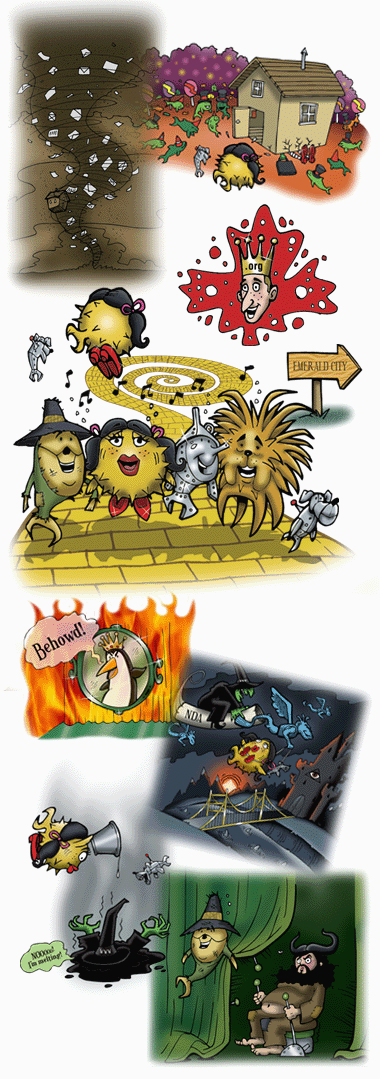
|
Lyrics and vocal melody written by Ty Semaka. Main vocals by Jonathan Lewis, sung female vocals by Adele Legere, Puffathy (little girl voice) by Anita Miotti, monkeys and laughing by Ty Semaka, guitar by Reed Shimozawa, drums, bass and all other sounds programmed by Jonathan Lewis. Co-Arranged by Ty Semaka & Jonathan Lewis. Recorded, mixed and mastered by Jonathan Lewis at Moxam Studios.
|
What is up with some free software providers?! They say "Here's something free! Oh wait, I changed my mind." While not exactly bait-and-switch, this is something which has been causing the community continual grief, and therefore we decided to honour a few of the projects that have decided to go non-free. After all.. having gone non-free, no one is going to remember them in the end. This song is dedicated to a few worthy groups who have made this Free-to-Non-Free transition with their offerings in the last few years:
So here's a goodbye to those three groups, and a warning to any others who will follow them: Make your stuff non-free, and something else will replace it. |
Well he rode from the ocean far upstream
But the town he found had suffered a blow
So Puff made a brand and he tanned his hide
But it didn't take long 'fore the filter plugged
Then he found the Mayor was addin' the crud!
So he rolled up-gulch till he hit the lake
I'll hang a lickin' on every one
|

|
Vocals, Lyrics, Melody and Co-Arrangement by Ty Semaka — Guitar by Chantal Vitalis — Bass by Jonny Nordstrom — Drums by John McNiel, Fiddle — Co-Arrangement, Recording, Mixing, Mastering by Jonathan Lewis of Moxam Studios.
|
A common theme used by the comedy crew Monty Python was to emphasize and exaggerate ridiculousnesses that their target had imposed upon themselves. Few things could be considered as humorous as making a redundancy protocol... redundant; e.g. being forced to replace it by Cisco lawyers and IETF policy. We've been working a few years now on our packet filtering software pf(4) and it became time to add failover. We want to be able to set up pf firewalls side by side, and exchange the stateful information between them, so that in case of failure another could take over 'keep state' sessions. Our pfsync(4) protocol solves this problem. However, on both sides of the firewall, it is also necessary to have all the regular hosts not see a network failure. The only reliable way to do this is for both firewall machines to have and use the same IP and MAC addresses. But the only real way to do that is to use multicast protocols. The IETF community proposed work in this direction in the late 90's, however in 1997 Cisco informed them that they believed some of Cisco's patents covered the proposed IETF VRRP (Virtual Router Redundancy Protocol); on March 20, 1998 they went further and specifically named their HSRP "Hot Standby Router Protocol" patent. Reputedly, they were upset that IETF had not simply adopted the flawed HSRP protocol as the standard solution for this problem. Despite this legal pressure, the IETF community forged ahead and published VRRP as a standard even though there was a patent in the space. Why? There was much deliberation at all levels of the IETF, and unfortunately for all of us the politicians within eventually decided to allow patented technology in standards — as long as the patented technology is licensed under RAND (Reasonable And Non Discriminatory) terms. As free software programmers, we therefore find ourselves in the position that these RAND standards must not be implemented by us, and we must deviate from the standard. We find all this rather Unreasonable and Discriminatory and we *will* design competing protocols. Some standards organization, eh? Due to some HSRP flaws fixed by VRRP and for compatibility with the (HSRP-licensed) VRRP implementations of their competitors, Cisco in recent times has largely abandoned HSRP and now relies on VRRP instead — a protocol designed for and by the community, but for which they claim patent rights. On August 7 2002, after many communications, Robert Barr (Cisco's lawyer) firmly informed the OpenBSD community that Cisco would defend its patents for VRRP implementations — meaning basically that it was impossible for a free software group to produce a truly free implementation of the IETF standard protocol. Perhaps this is because Cisco and Alcatel are currently engaged in a pair of patent lawsuits; a small piece of which is Cisco attempting to use the HSRP patent against Alcatel for their use of VRRP. Some IETF working group members took note of our complaints, however an attempt in April 2003 to have the IETF abandon the use of patented technology failed to "reach consensus" in the IETF. A few years ago, the W3C, who designs our web protocols, tried to move to a RAND policy as well (primarily because of pressure from Microsoft and Apple), but the community outrage was so overpowering that they backed down. Some standards groups use this policy, while others avoid it — the one differentiation being the amount of corporate participation. In the IETF, the pro-RAND agents work for AT&T, Alcatel, IBM, Cisco, Microsoft, and other large companies. Since IETF is an open forum, they can blend in as the populace, and vote just like all others, except against the community. Translation: In failing to "reach consensus", the companies who benefit from RAND won, and the community lost again. Left with little choice, we proceeded to reinvent the wheel or, more correctly, abandon the wheel entirely and go for a "hovercraft". We designed CARP (Common Address Redundancy Protocol) to solve the same problem that these other protocols are designed for, but without the same technological basis as HSRP and VRRP. We read the patent document carefully and ensured that CARP was fundamentally different. We also avoided many of the flaws in HSRP and VRRP (such as an inherent lack of security). And since we are OpenBSD developers, we designed it to use cryptography. The combination of pf(4), pfsync(4), and carp(4) has permitted us to build highly redundant firewalls. To date, we have built a few networks that include as many as 4 firewalls, all running random reboot cycles. As long as one firewall is alive in a group, traffic through them moves smoothly and correctly for all of our packet filter functionality. Cisco's low end products are unable to do this reliably, and if they have high end products which can do this, you most certainly cannot afford them. As a final note of course, when we petitioned IANA, the IETF body regulating "official" internet protocol numbers, to give us numbers for CARP and pfsync our request was denied. Apparently we had failed to go through an official standards organization. Consequently we were forced to choose a protocol number which would not conflict with anything else of value, and decided to place CARP at IP protocol 112. We also placed pfsync at an open and unused number. We informed IANA of these decisions, but they declined to reply. This ridiculous situation then inspired one of our developers to create this parody of the well-known Monty Python skit and song. |
A zero... one.. A one zero one one
VRRP, philosophically,
But can VRRP
Singing...
La Dee Dee, 1, 2, 3.
Is this wretched Cisco-eze
Fiddle dee dum,
1 1 2,
My firewall just keeps running, see,
Redundancy must be free.
The End
Under the Geddy Lee?
No, Redundancy must be free!
Geddy must be free. |

|
"CARP License" sketch:
Tony Binns as the Customer, Peter Rumpel as the Licenser.
"Redundancy must be free" song:
Lead vocal by Peter Rumpel, backing vocals by Jonathan Lewis and Ty Semaka.
Piano by Janet Lewis, acoustic guitars by Chantal Vitalis.
Bass and Geddy Lee questioning by Jonathan Lewis.
Lyrics by Bob Beck.
|
Join Puffy Hood and his Funny Fish as they take on the Sheriff (an unelected leader) and other evil forces of the draconian government! As we did for the 3.3 release, we have once again tried making release artwork and music which are allegorical of recent happenings. Two years ago we became involved with the University of Pennsylvania and DARPA, who were funding us to do security research and development .. on things that we were already intending to do. We provided ideas, wrote papers, and deployed cutting-edge technology; DARPA provided finances and reaped a share of the credit, and the University of Pennsylvania acted as a middle-man. We accepted funding based on the promise that our freedom to operate as we wished was unaffected. To us, freedom is more important than funding — heck, we were dealing with the evil forces of government, and needed to be careful. A few months prior to this release, DARPA suddenly and without warning decided to withdraw that funding; they also aggressively backed out of contractual obligations. Many articles in the press followed regarding this sudden maneuver. Apparently this hoopla happened because an OpenBSD-related article in the Canadian newspaper The Globe & Mail had quoted Theo de Raadt making anti-war statements regarding Iraq and the theft of oil. The only answer given (to major media reporters) by a DARPA spokesperson (Jan Walker) was this: "As a result of the DARPA review of the project, and due to world events and the evolving threat posed by increasingly capable nation-states, the Government on April 21 advised the University to suspend work on the "security fest" portion of the project." That almost toes the line of calling us terrorists! We had lost financial support, but the release of the statement above suddenly made us very happy to be free of any perceived obligation to such crazy people. Since the termination came near natural contract termination (about 4 months remained), less damage than expected was sustained by the project. Sponsors stepped forward and helped us make up the missing funds we needed to run our "Hackathon", and the event proceeded as planned. We even had T-shirts made with "Workstations of Mass Development" artwork for those developers who attended (sorry, they are not for sale). We could not make stories like this up. So instead, we are making up an allegory about it, using the tale of Robin Hood. |
Sir Puffy of Ramsay was a wandrin'
|

|
Music, Co-arrangement, Recording, Mixing, Drum Programming,
Bass, Organ, and Violin by Jonathan Lewis.
Co-Arrangement, Lyrics, and Main Vocals by Ty Semaka.
Back-vocals by Bob Beck, Calvin Beck, Theo de Raadt, Alan Kolodziejzyk,
Jonathan Lewis & Peter Valchev.
Rap #1 by Richard Sixto.
Guitar by Chantal Vitalis.
|
Like other Barbarians before him, Puff has had to face some pretty crazy challenges. This song is an allegory of the recent difficulties we went through dealing with Sun, who refused our request for documentation about their UltraSPARC III processors. We want documentation, because these are the fastest processors with a per-page eXecute bit in the MMU, needed to fully support our new W^X security feature. In the meantime, the AMD Hammer has come onto the scene, and this processor supports an eXecute bit in 64-bit mode.
And it is going to be faster... |
Deep through the mists of time
A King ruled the web with fear
Down the sewer pipes of Hell
And there he found
Then in a dream Xor requested he
At the tower Puff appealed
Broke down the guard
Come the Sun King blade ablur |
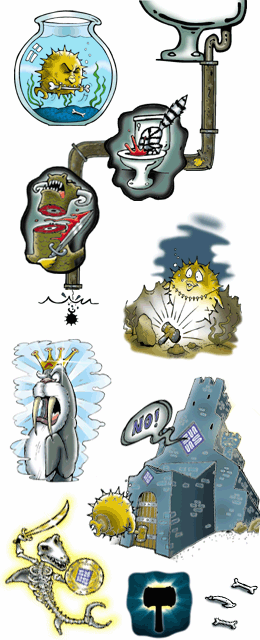
|
Written and arranged by Ty Semaka. Co-arranged, recorded, mixed & mastered by Jonathan Lewis. Vocals by DeVille, guitar by Sean Desmond, bass by Ian Knox, drums by John McNiel, violin by Jonathan Lewis.
|
Goldflipper
And the fish
Cyborg on a mission (short instrumental intro)
You'll need some machismo to
But Flip's here for fun
She's all over Puff cause he's
Oh double seven
The women are fond
Goldflipper is gone |
Lyrics by Ty Semaka. Arranged by Ty Semaka & Jonathan Lewis. Base & drum programming, recording, mixing & mastering by Jonathan Lewis. Vocals by Onalea Gilbertson. Sax by Dan Meichel. Trumpet & Trombone by Craig Soby.
|
BSD fight buffer reign
Crackin' ze bathroom, Crackin' ze vault
Can't fight the Systemagic
Sexty second, black cat struck
Crackin' ze boardroom, Crackin' ze vault Chorus
Cybersluts vit undead guts
Crackin' ze bedroom, Crackin' ze vault Chorus |
Produced & Directed by Ty Semaka and Ian Knox. Written, Arranged and Performed by Ty Semaka (vocals, lyrics), Ian Knox (bass, drum programming), and Sean Desmond (guitar). Recorded & Mixed at Ruffmix Audio Productions (Calgary) by Kelly Mihalicz. Mastered by Jonathan Lewis.
|
Don't tell anyone I'm free
During these hostile and trying times and what-not
I'm secure by default
They that can give up liberty to obtain a little temporary safety
RELEASE TIME!!!!
Stay off, stay off, stay off... |
By The Plaid Tongued Devils. Produced & Arranged by Ty Semaka & Wynn Gogol. Written & Performed by Gordon Chipp Robb (bass line), John McNiel (drums), Ty Semaka (vocals & lyrics), and Wynn Gogol (programming). Recorded, Mixed & Mastered by Wynn Gogol of Workshop Recording Studios (Victoria BC). Check out thedevils.com
[Sorry, no commentary]